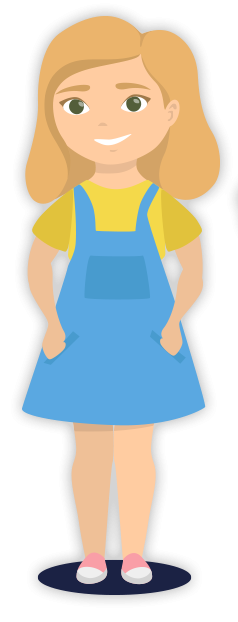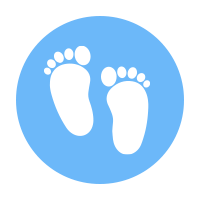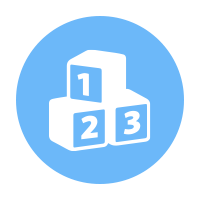- The CDC has not identified milestones for this age and area of development. As a parent, you know your child best. If you think there could be a problem with the way your child plays, learns, speaks, acts, and moves talk to your child’s doctor and share your concerns.
- Ask your child’s doctor, preschool or child care teachers if your child is having difficulty with toilet training. Bladder and bowel control are usually established by 4 years of age and your child may need additional support in this area of development.
- This is a good time to talk to your child about safe touch. No one should touch “private parts” except doctors or nurses during an exam or parents when they are trying to keep the child clean.
- Talk about your child’s emotions and give him words to help him explain how he’s feeling. Help your child manage stressful feelings by teaching him to take deep breaths, hug a favorite toy, or go to a quiet, safe place when he is upset.
- Set a few simple and clear expectations that your child can follow, such as we wash our hands after we use the potty. Show the child what is expected. Later, if your child follows the expectation recognize and congratulate them.
- Encourage your child to use “his words” to ask for things and solve problems but show him how. He may not know the words he needs. For example, help your child say, “Can I have a turn?” instead of taking something from someone.
- Help your child learn about others’ feelings, and about positive ways to react. For example, when he sees a child who is sad, say “He looks sad. Let’s bring him a teddy.”
- Use positive words and give attention to behaviors you want to see (“wanted behaviors”). For example, say “You’re sharing that toy so nicely!” Give less attention to those you don’t want to see.
- Tell your child in a simple way why she can’t do something you don’t want her to do (“unwanted behavior”). Give her a choice of what she can do instead. For example, “We can’t play with the soap at the sink while washing our hands. Do you want to go outside and play or get some toys or puzzles out?”
- Give your child toys or things that encourage his imagination, such as dress-up clothes, pots and pans to pretend cook, or blocks to build with. Join him in pretend play, such as eating the pretend food he cooks.
- Take time to answer your child’s “why” questions. If you don’t know the answer, say “I don’t know,” or help your child find the answer in a book, on the Internet, or from another adult.
- You know your child best. Don’t wait. If your child is not meeting one or more milestones, has lost skills he or she once had, or you have other concerns, act early.
- Talk with your child’s doctor, share your concerns, and ask about a developmental screening.
If you or the doctor are still concerned:
- Ask for a referral to a specialist who can evaluate your child more; and
- Call your local Missouri public elementary school in which your family resides and ask for a free evaluation to find out if your child can get services to help.
What's Next?
Download the Milestone Tracker app today!
Track your child’s milestones from age 2 months to 5 years with the CDC’s easy-to-use illustrated checklists; get tips from the CDC for encouraging your child’s development; and find out what to do if you are ever concerned about how your child is developing. Photos and videos in this app illustrate each milestone and make tracking them for your child easy and fun.













